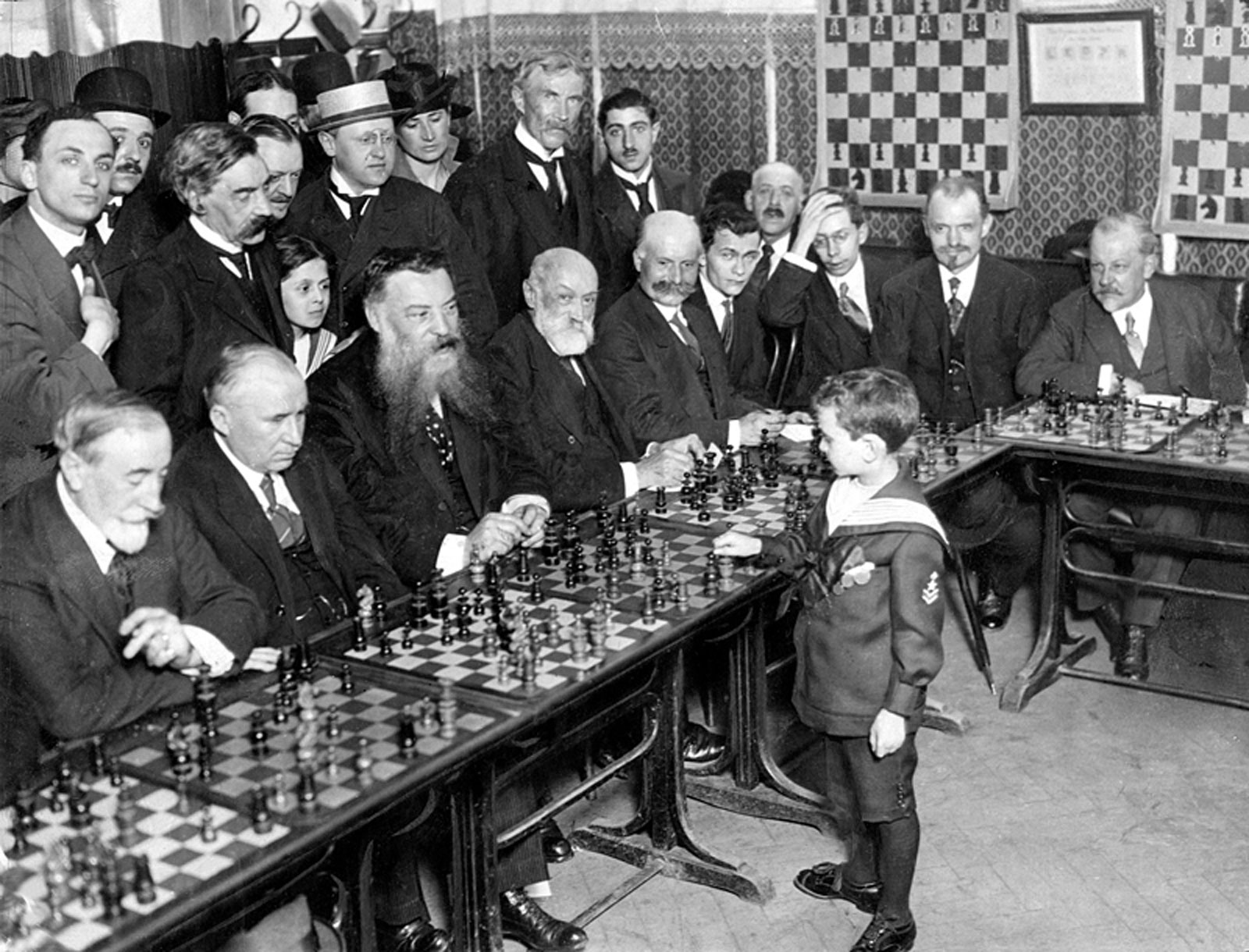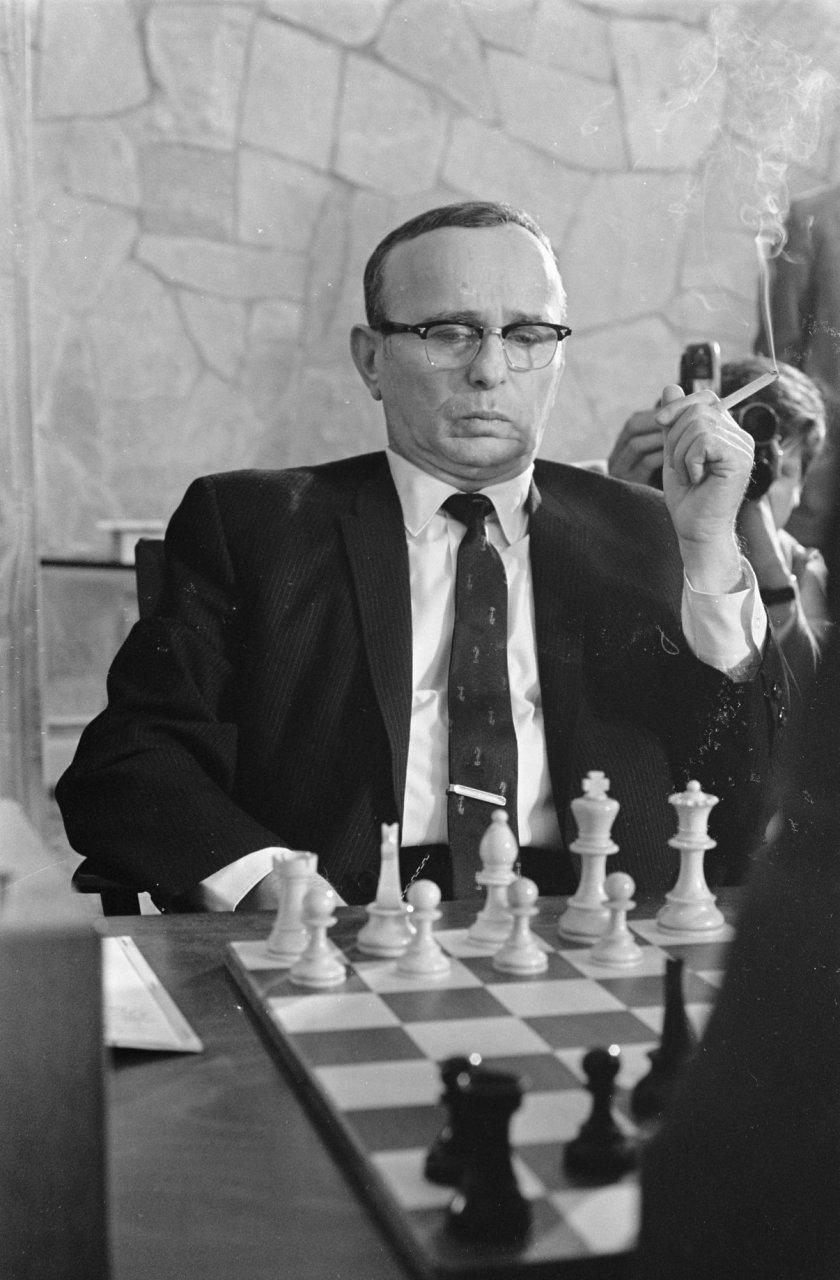
“His face is intelligent and his head well shaped, but not abnormal.”
In the classic photograph above, the eventual chess grandmaster (and accountant) Samuel Reshevsky shows his prodigious skills for the game by squaring off simultaneously against 20 excellent adult players in France. The following article from the May 18, 1920 New York Times records the day’s events:
“Paris–Twenty graybeards sitting in a square played chess yesterday in Paris against a very small boy 8 years old, and he beat them all. Among the graybeards were some of the best players in France, and one at least, whose boast is that he drew with Capablanca, the Pan-American chess champion, but all their reputation availed them nothing against a frail child with a pale, thoughtful face, who moved quietly from one board to another, reducing their most skillful plans and wiles to nothingness and mating them when they least expected it.
Samuel Rzeschewski is the name of the prodigy. He was born near Lodz, in his father, himself a well known player, showed him the moves. For the paternal dignity the lesson was unfortunate. Within a fortnight Samuel was giving his father such beatings that to equalize things he had to give him a rook and another piece.
Yesterday at the Pavillon de la Rotonde, against twenty of the best players of the Palais Royal Society, his victory was complete. Wearing a blue sailor suit, he stood alone in the square of tables and faced unperturbed his graybeard and bald antagonists. His face is intelligent and his head well shaped, but not abnormal. Only the gravity of his face showed that he was not any ordinary 8-year-old going to play ‘hunt the thimble’ with an assembly of grandfathers.
Stepping quickly from one board to another, he spent little time on his moves. He seemed to see at once the weakness of his opponents’ play. Once or twice, when one of them had moved foolishly, his brows contracted in a disapproving frown. For half a minute at most he stood in front of each board, whistling through his teeth, then moved decisively and left his opponent puzzling uselessly how to counter the attack. In the end every one of the men was soundly trounced.
From here Samuel is going to London to complete his conquest of Europe, and then his father says he must retire from public life and begin his education, which has been sadly neglected during the war.”

